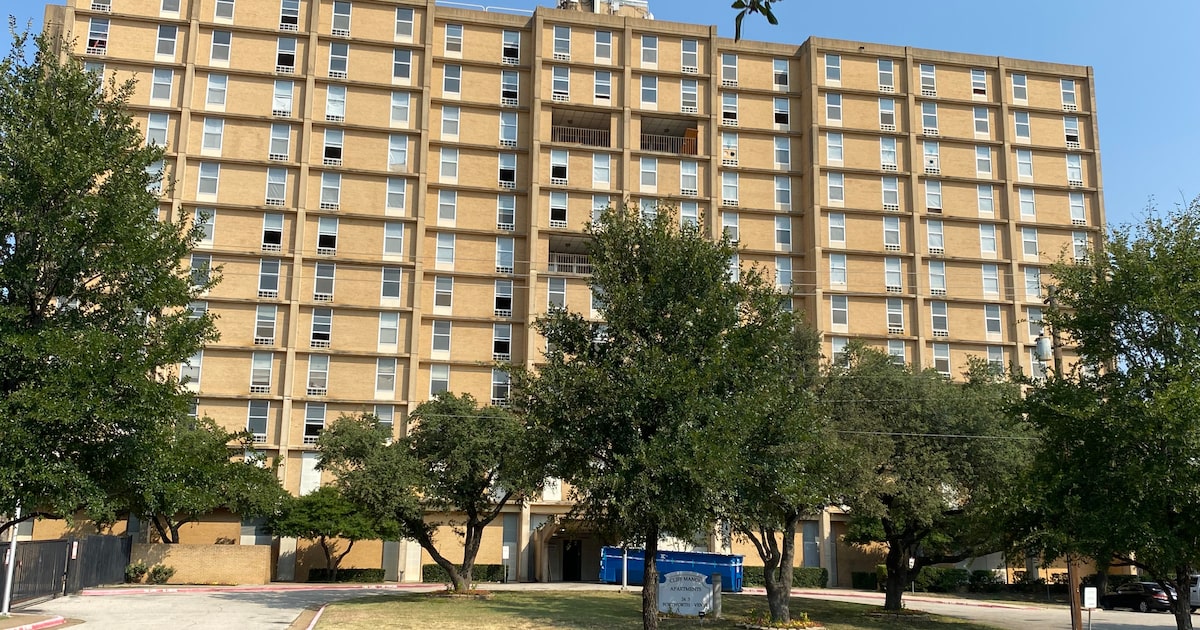An architectural masterpiece it isn’t, unless you’re a fan of Soviet-era apartment blocks. But the vacant, 12-story, tan brick Cliff Manor tower on Fort Worth Avenue served an important purpose when it opened in 1974. The Dallas Housing Authority project provided low-cost housing to low-income senior citizens and people with disabilities.
Now Cliff Manor is coming down. Nearby homeowners may celebrate that ending — the tower was unpopular from the start — but it is unfortunate.
Low-income North Texans already face a serious shortage of decent, inexpensive apartments and rental houses. The Child Poverty Action Lab reported in December that 69% of Dallas seniors spend at least a third of their income on housing. The loss of Cliff Manor’s 180 subsidized units hurts a vulnerable population that has limited housing options.
The history of public housing in Dallas is full of unfortunate decisions, including a pattern of intentional racial segregation that persisted into the 1980s.
Opinion
DHA built several high rises for very low-income elderly and disabled tenants in the late 1960s and early 1970s. The 18-story Park Manor in South Dallas was predominantly Black. Brook Manor, in central Oak Cliff, was mostly white. It was demolished in 2014.
Cliff Manor, which went up just east of the famed Bronco Bowl on Fort Worth Avenue, was the first public housing high-rise in Dallas intentionally integrated from the start.
Nearby homeowners fought the project. They argued that a tower would be out of scale with nearby single-family neighborhoods, which was true, although pre-existing zoning allowed a 20-story office building on the parcel. Homeowners also worried the development would negatively affect a stable area.
Today, it’s hard to determine the factual basis of those concerns. Fort Worth Avenue had already started a slow decline as more drivers shifted to nearby Interstate 30. The motor court motels along the avenue were becoming cheap places to live or pursue illicit activities. DHA re-ignited the controversy in 2010 when it began allowing formerly homeless people to rent units at Cliff Manor in an early experiment with permanent supportive housing.
The DHA began relocating Cliff Manor residents in 2023. A dumpster wrapped with asbestos caution tape now sits at the front entrance, and a demolition permit could be approved by the end of the year.
A DHA spokesperson emailed that the agency has not yet determined what it will do with the property. A draft of the agency’s five-year public housing plan suggests the site might be used for “senior housing more suitable to the neighborhood and current zoning.”
Meanwhile, a few blocks away on Fort Worth Avenue, a project to convert a motel into permanent supportive housing has been stymied by federal budget cuts. If you’re elderly and impoverished, or recently homeless, and need housing now, good luck. You’re going to need it.
We welcome your thoughts in a letter to the editor. See the guidelines and submit your letter here.
If you have problems with the form, you can submit via email at letters@dallasnews.com
